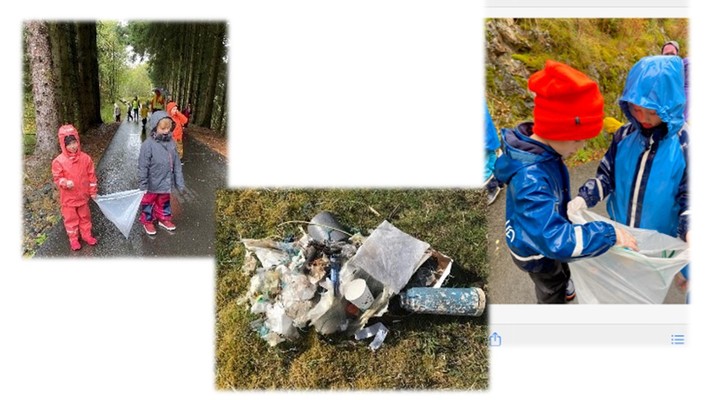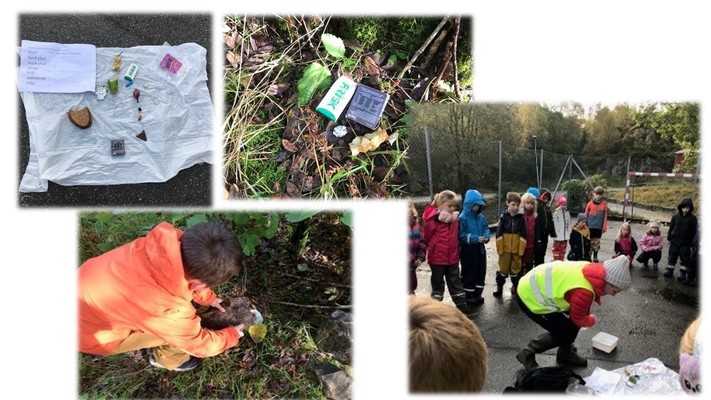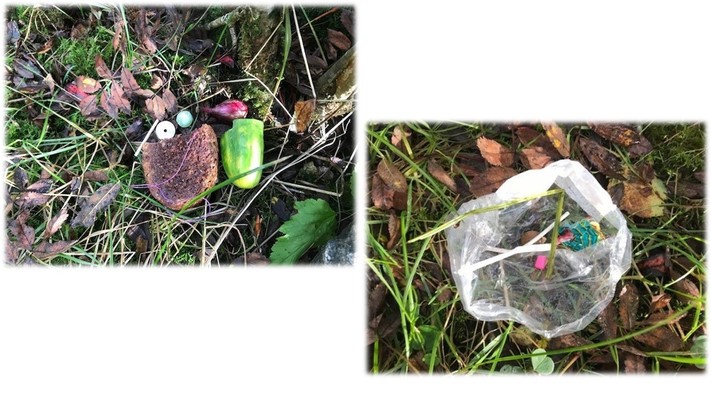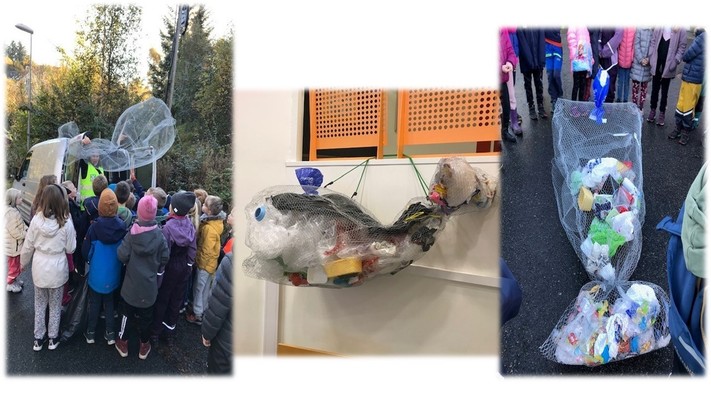Plastic in the ocean, 2nd grade at Kolltveit school.
Target:
- Learn/find out why plastic is dangerous for life in the ocean.
- What can the pupils do to help prevent plastic pollution?
- How does so much of the plastic end up in the ocean?
We started to check out if we could find plastic in the local areas around the school and in a bay nearby. And we did find lots of plastic things. The pupils were very eager to pick up all the plastic waste they found.

We also saw some films for children about plastic in the ocean and how it affects the animals and all the plants in the ocean. The pupils learned from the films that most plastic in the nature ended up in the ocean and that it was important to do something about it. On every walk we have had after this project, the pupils always look for plastic and other waste that does not belong in the nature.
We learned about how important it is to sort plastic and to recirculate it. In Norway all household has the opportunity to sort plastic, paper, food and residual waste. The pupils answered some questions about how good each family is at sorting waste and what they could be better at. The pupils suggested to sort plastic at school as well.
We put waste under stones to see how long it takes to disappear or as the pupils suggested – become soil. And that made us wonder – can all waste turn into soil?
This is what we put under some stones to see what happens in a few years time: soft plastic, coin, chocolate, apple, bread, tread, cucumber, metall piece, hard plastic, chalk, some sweets, paper:


The conclusion is jet to be found.
In our county there was found a stranded whale. He was ill. The whale has got the name The Plastic Whale because they found 30 plastic bags in his stomach. They believe that was the reason for his illness.
As an art project we decided to try to make the plastic whale. One of the teachers made the whale body out of chicken wire. The pupils helped fill it with plastic they had brought from home. The plastic we found in the nature was too dirty to use.

And we made it!
The pupils conclusion to the plastic problem: Never throw plastic in the nature and pick it up if you find some. And it is good if we recirculate the plastic.